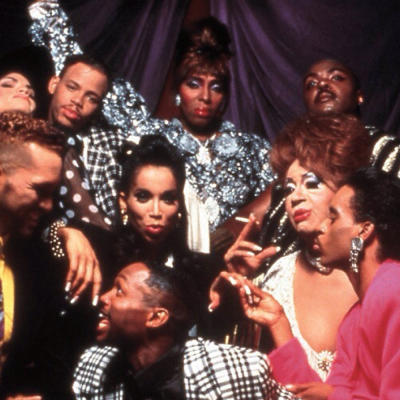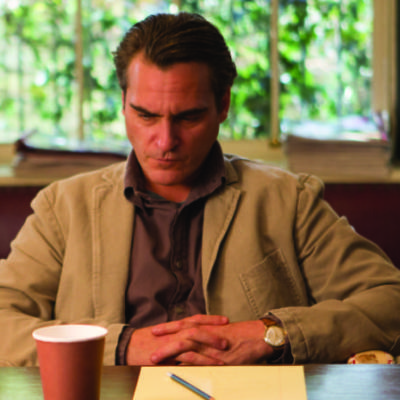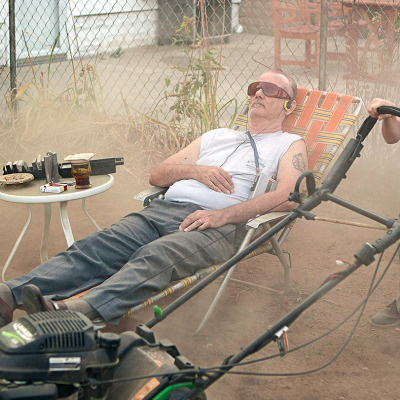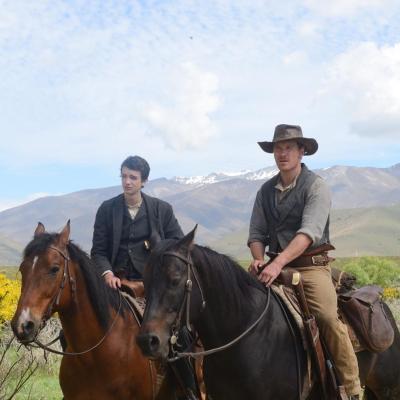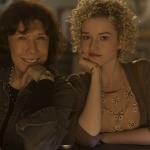The 2015 Queer Screen Film Fest program has just been announced, so what better time to revisit our review of the hilarious Grandma, which is showing as part of the festival. Check out the full festival program here.
In the role of Elle Reid, the legendary Lily Tomlin sinks into a role that seems as if it had been written for her. Grandma is Tomlin’s first lead role in nearly three decades, but it proves that she is still just as funny, soulful and eminently likable as ever.
Elle is an aging, foul-mouthed poet, clinging to the bohemian lifestyle and ideals of her youth. She also happens to be a lesbian who, when the film begins is in the middle of an impassioned breakup with her younger lover Olivia, played by the criminally underappreciated Judy Greer (The Descendants).
Shortly thereafter, Elle receives a visit from her pretty but timid granddaughter Sage, who has made a dire mistake and is in need of some financial assistance. As the pair scramble to find the money, Elle visits many places and people from her past, and her strange but endearing personality slowly becomes clearer.
Grandma is a very cleverly made film in that it doesn’t rely on flashbacks or long-winded exposition to drive the story. All of the dialogue seems very organic, but never loses focus of the ways in which it shines light on Elle’s character, who, while she is grumpy and often confrontational, is also very caring and a little insecure.
In the film’s first act, Elle seems to veer a little too close to the trope of the Badass Grandma, but thankfully she is pulled back from the edge as her flaws, vulnerability and her softer side are gradually revealed. Tomlin does an absolutely superb job of playing up this complexity, making Elle a fully fleshed-out and believable character.
The rest of the cast is also wonderful. Laverne Cox (best known for the flagship Netflix series Orange Is the New Black) and Marcia Gay Harden (Miller’s Crossing, Into the Wild) both steal their respective scenes despite having relatively little screen time. Julia Garner in her first major role as Sage also does a fine job of evoking the confusion and pain of being young, put-upon and helpless.
Grandma is a comedy-drama, and most of the time it succeeds in being very funny – often thanks to Tomlin’s exceptional comic timing – though the humour is sometimes a little obvious or unoriginal. For the most part, though, the comic relief folds easily and natural into the more serious aspects of the plot.
The film is a powerfully emotional experience. Its message of family, trust and honesty are no less universal even given that the clan at the film’s centre are very non-traditional. It pulls off the trick of making you feel deep sadness for a character who never actually appears on-screen; Violet, whose name is tattooed on Elle’s forearm, is missed acutely.
Perhaps Grandma leans a bit too heavily on established indie tropes – some of the characters and situations, as well as the pitter-pattering ostinatos of the score – but at the same time it feels like an important film. It mines similar territory to Oscars success story The Kids Are All Right, but arguably it is more honest and touching and far less self-consciously contrived – the word “lesbian” is not even spoken until deep into the second act.
Grandma is not perfect, but it is hugely enjoyable – funny, heartfelt, clever, superbly acted – and all in under eighty minutes. If for no other reason, you should see it for Tomlin’s performance which all on its own proves her status as a legend.
